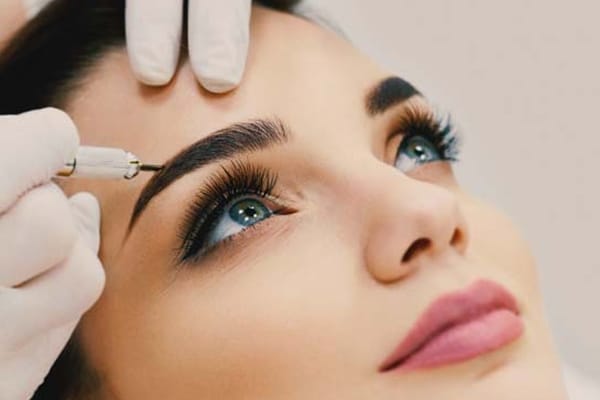Opting for toxic-free permanent makeup Perth is the best thing that you can do to your skin, and your health as well as the environment. Enhancing your beauty through products like vegetable based cosmetic mineral make up and organic cosmetics is the new way to promote long term health. There is no reason why one should continue using toxic cosmetics.
Most of the cosmetics that are on the market are made up of chemicals that are banned in other countries. This is because of the incomprehensible stand of our government, which gives the cosmetic manufacturers a free hand to make rampant use of these harmful chemicals. That issue, although explained in this article, will be dealt with in detail separately in another article. The first thing that we need to do is discover how to protect our skin and general well being from the harmful effects of these toxic cosmetics.
New research has shown that exposure to toxic chemicals that raise havoc with our hormones could increase the risk of breast cancer. This is particularly true for teenagers and pregnant women when they expose themselves to these active ingredients in cosmetic products. Europe has made great progress in regulating cosmetics.
The European Union (EU) passed an amendment to the “Cosmetics Directive”, the law that regulates cosmetics in all 15 EU countries. It would ban any and all chemicals that were known or highly suspected of causing cancer, birth defects, or genetic mutation from use in cosmetic products. Hundreds of chemicals (over 1100) were prohibited.
Some US cosmetic companies responded by saying “American women are not as concerned about cosmetics as the Europeans.” How dare they decide what concerns one has! One large cosmetic firm had a real disconnect and responded to a written request regarding the use of Pthalates (pronounced tha-lates and just a fancy word for fragrance and found in over 79% of all cosmetic products), saying “the US has the safest products that our laws will allow both for the consumer and for the environment”.
However in South Korea, that same company, in response to similar consumer concerns, acted in a somewhat different manner when the “Women’s Committee of the Korean Federation for Environmental Movements” tested 24 products for a toxic ingredient known as Pthalates. One hundred percent of products tested had Pthalates. Ninety-six percent had more than two Pthalates. Fifty percent had more than three and eight percent had four different kinds.
Now that same company that responded to the US inquiry saying what they used was safe, now responded in South Korea this way. “Our firm does not use DEHP and DBP (Pthalates), about which concerns have been raised, as components of our products”. They subsequently removed all Pthalates from their products.
Another very large company took one position in the US, but when challenged in the UK, said this:”We agree with the Women’s Environmental Network position on the inherent toxicological potential of Pthalates. We take a precautionary approach and will only use an ingredient if it is safe and approved for use in Cosmetic products. As a consequence of this approach, there is already a program to remove Pthalates from our products.”
In April of 2004 there was a march on the US Capitol that organizers claimed was the largest of its kind. More than one million people joined in the March for Women’s Lives and it became the launching pad for an organization known as the Campaign for Safe Cosmetics. The campaign’s message promotes toxic-free cosmetic products. It pledged to replace hazardous chemicals found in cosmetic products with safer alternatives within three years. To accomplish this it asked cosmetic manufacturers in the US to do four things:
